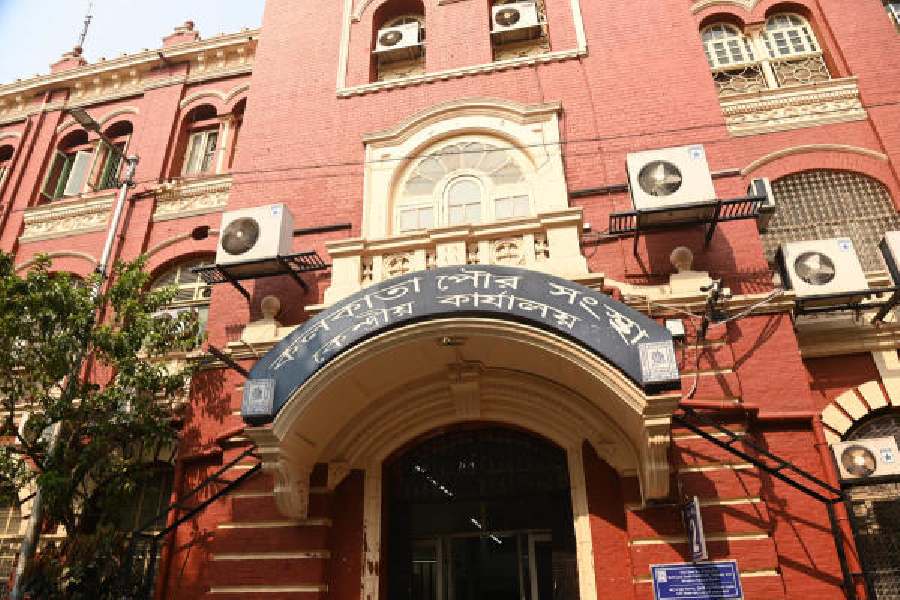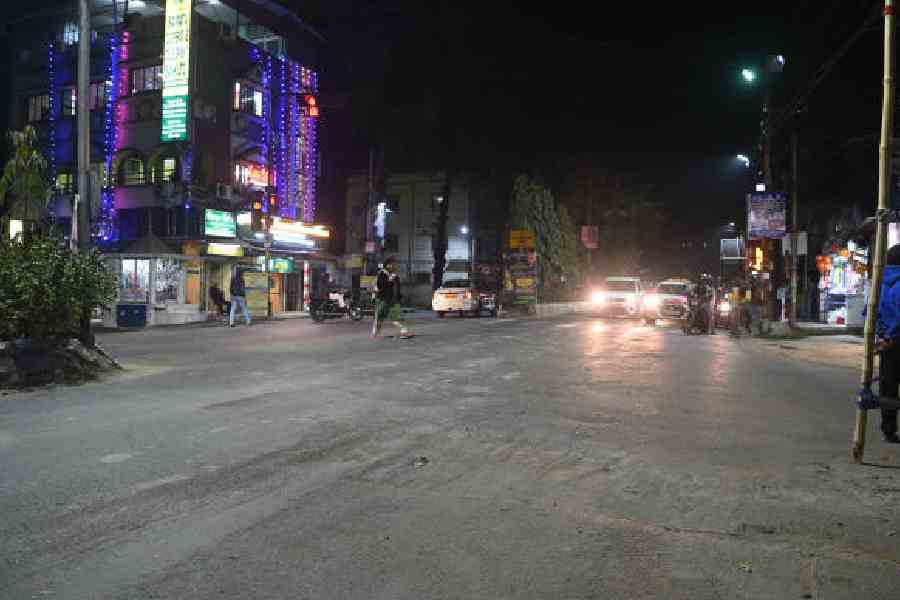New Delhi, Sept. 3 :
New Delhi, Sept. 3:
Minister blows surplus myth
The government today admitted the sordid truth: the country's grain silos are overflowing - creating a false sense of food security - because a large number of people simply don't have the money to buy rice and wheat.
Agriculture minister Ajit Singh said the food surplus would not have been created if people had the money to buy the grain.
The country's grain mountain has swelled to 616.71 lakh tonnes of rice and wheat against a minimum food buffer stock requirement of 243 lakh tonnes (100 lakh tonnes of rice and 143 lakh tonnes of wheat). This has created a surplus in the central pool of 373 lakh tonnes of rice and wheat.
It isn't one of the biggest surpluses - a few years ago it had swelled to almost 500 lakh tonnes, and the grain had rotted in the open silos where the government stores most of it.
Statistics lend a different perspective to the chilling reports about the alleged starvation deaths in Orissa - where people have been chewing on mango kernels to try and keep body and soul together.
But there are no bleeding hearts in the government: in fact, the Centre has been aggressively in a denial mode claiming that reports from the state administration and Central teams that toured the worst-hit Kashipur area in Orissa did not support these claims.
With around 36 per cent of the population living below the poverty line, the government has handed out only 36 lakh BPL (below the poverty line) ration cards (each card covers a family of five). That still leaves a large number of people outside the ambit of the ration card system.
Several states are yet to identify all the people living below the poverty line. A shocked Supreme Court today asked many states, including Orissa and West Bengal, to start enumerating those living in acute poverty. The court also wanted government schemes to be implemented by officials with the right 'spirit, inclination and drive'.
Even those who have the cards cannot buy the ration-shop grain because they are deterred by the Central issue price of Rs 4.15 per kg for wheat and Rs 5.65 per kg for rice.
J.N.L. Srivastava, agriculture secretary, said: 'The public distribution system (PDS) has to be beefed up. The agriculture ministry cannot send the grain directly to the states. That's the job of the food and PDS department.'
Sources in the food and civil supplies department said the Centre had been making grain allocation to the states but the problems had been created because of the poor offtake by the states.
The government had told Parliament last week that in the case of Orissa, foodgrain allocation in 2000-01 in the BPL category was 10.52 lakh tonnes but offtake had been just 6.60 lakh tonnes.
'There's an inherent inefficiency in the system. The problem arises because of vested interests who either do not lift the grain from godowns or siphon it off into another channel. It's not just a simple case of poor offtake by the states. We hire a lot of private godowns and vehicles to transport the grain there. They are at the root of the problem,' said a former agriculture secretary.
Apart from providing subsidised food to BPL families, the government also runs the Antodaya Anna Yojna, where each family gets 25 kg of foodgrain at highly subsidised rates - wheat at Rs 2 a kg and rice at Rs 3 a kg. The scheme involves a subsidy of Rs 2,315 crore.
'Indian agriculture is starved of capital. And, in recent times, the public, government and private investments have been going down,' Ajit Singh told a seminar to discuss the role of the private sector in agricultural marketing.
The rate of growth of foodgrain production is lower than the population growth but the
granaries are still overflowing as people do not have the wherewithal to buy the grain, the minister said.
 Monday, 09 February 2026
Monday, 09 February 2026









